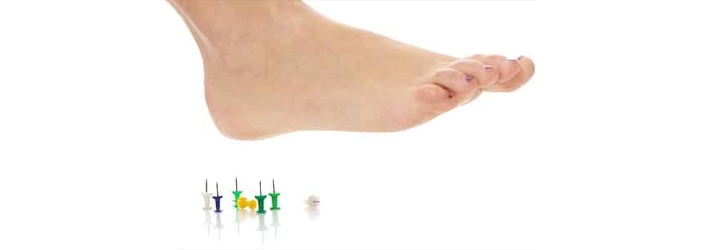Recovering from Bunions Surgery

RECOVERING FROM BUNIONS SURGERY
Great Day Practice Members of Calgary!
I write you today to discuss how to prevent one of the most debilitating surgeries to recover from. Recently, I have two patients recovering from the dreaded bunion surgery and the recovery has been miserable. Something I have seen many times in the past but this time I had to write about it.
Bunions are quite the challenge. Some are genetic, some are acquired.
At Full Potential Chiropractic, our philosophy is do everything you can to protect your feet and prevent them whether you they run in your family or not.
I would say the majority of what we see in the office is acquired due to faulty mechanics of the feet or inappropriate footwear.
When one or both feet lose their normal arch, it puts undue stress on the soft tissues and bones of the foot. We often see a cascade of issue develop over time.
Plantar Fasciitis – sharp pain or burning on the bottom of your feet, worse in the morning or with activity.
Heel Pain or Spurs – sharp pinpoint pain on the under the heel.
Metatarsalgia – sharp pain in the foot closer to the toes.
Mortons Neuroma – sharp, shooting pain into the toes from the foot.
Bunions – boney outgrowth on your big toe.
Obviously, when the mechanics of your feet are off, you will eventually develop knee or hip or back issues as a result.
We like to always evaluate feet for this reason. Your feet are your foundation and we pretty much use them all day everyday!
In the old days, we used to walk on dirt, sand and uneven surfaces, which built the intrinsic muscles of the foot. The feet were constantly working and adapting to those surfaces, maintaining a healthy arch.
Today, our houses are made with hardwood and tile, which I believe can be extremely hard on the foot. Add the type of shoes than some wear (sorry women, the pumps are the recipe for disaster) and we see more and more people suffering with these issues.
What can you do to prevent bunions, plantar fasciitis etc?
1) Avoid wearing small toe box shoes, high heels for any extended periods. I know this is a non starter for many of you, so just try to limit the use and if you choose to, make sure you wear support! (Ask one of the Dr’s at the office)
2) Wear something with support around the house. Birkenstock sandals, slippers with an arch support or even an indoor running shoe are great to support your natural arch.
3) Strengthen your arches. Walk around barefoot on soft surfaces as much as you can (Eg. sand, grass). Use the video that Dr. DJ LeDrew D.C. created on how to relieve foot pain here.
4) Prevention. Prevention. Prevention.
It’s crucial to have your feet evaluated every year or two, to ensure you arches are not collapsing. Fortunately, we have the most advanced software in the office to evaluate your gait cycle as you walk. It is so important to actually see what your foot is doing while you walk, as well as stand. This is an added service we do for all patients for FREE!! Call the office to schedule that evaluation today.
Our gait scan will identify potential problems before they arise and we can put you on a program to prevent you from years of problems. If you happen to need orthotics, this is the month to get them!
We are having an Orthotic Special
1 for $300 2 for $525
Make it a great day!
Dr. DJ LeDrew D.C.